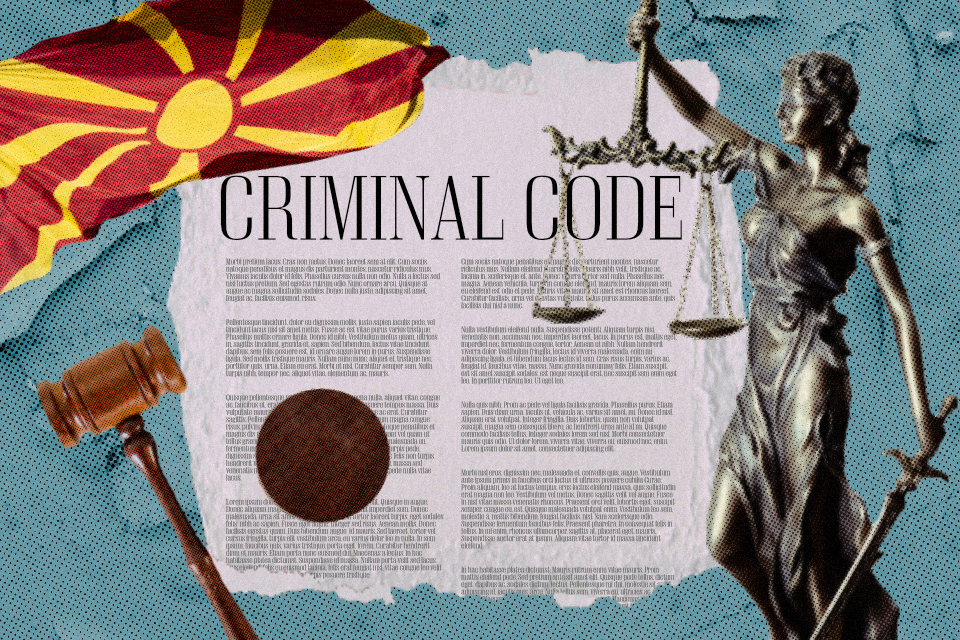New amendments in North Macedonia’s Criminal Code expand protection for various forms of violence against women
Date:
North Macedonia now has expanded protection for various forms of violence against women with the adoption of new amendments of the Criminal Code which align the country’s laws with the Convention on Preventing and Combating Violence against Women and Domestic Violence, also known as the Istanbul Convention.

After years of lobbying and collaborative work between the Ministry of Justice of North Macedonia, the Working Group for changes to the Criminal Code, think-tanks, civil society organizations and Parliament, crititcal amendments to the Criminal Code were adopted in February 2023.
“A few years ago, we started drafting a Law on Amendments and Supplements to the Criminal Code, the largest part of which referred to the provisions of the Istanbul Convention,” says Nikola Prokopenko, State Counsellor at the Ministry of Justice. “Several non-governmental organizations were actively involved in the drafting phase of the law, and the text was open for comments. The received opinions and suggestions from all stakeholders were analysed in detail by the Working Group and incorporated into the then-working version of the law. With its adoption by Parliament, the Criminal Code is aligned with the Istanbul Convention.”
As a result of the amendments, the Criminal Code for the first-time specifically defines and criminalizes a number of different types of violence, including: femicide (the murder of girls and women), female genital mutilation, stalking and sexual harassment. The changes also expand the definition of sexual violence to include online and non-consensual sexual acts and rape, and the rape of a current or previous spouse or intimate partner.
“All these are very important changes in legislation that will, together with the new Law on the Prevention and Protection from Violence against Women and Domestic Violence, which was adopted in January 2021, set the basis for full implementation of the Istanbul Convention and allow for new and better services, increased allocation of resources, protection measures and databases that will allow an analysis of trends to positively transform the discourses around violence that women and girls experience,” says Marija Risteska, Executive Director of the Centre for Research and Policy Making (CRPM), who has been at the forefront of the Working Group for changes to the Criminal Code, a multistakeholder body created and chaired by the Ministry of Justice.
UN Women supported the process by participating in technical working meetings, providing expert advice, organizing discussions with civil society organizations, and by supporting an awareness-raising campaign for the general public on the Istanbul Convention’s provisions and the need to amend the Criminal Code. These achievements were possible thanks to the European Union-funded regional programme on ending violence against women “Implementing Norms, Changing Minds.”
“The background work in amending the Criminal Code focused on advocacy and expert-level dialogue with the Government and Parliament to amend existing legislation in the field of gender-based violence and gender-based discrimination, in line with the Istanbul Convention,” explains Irena Spirkovska Lukrovska, Technical Programme Analyst, UN Women. “The approach included policy analyses and evidence-based policymaking, dialogue and advocacy.”
A significant part of the work included a gap analysis of the country’s commitments under the Istanbul Convention and the provisions of its Criminal Code. Finalized in 2019, the gap analysis concluded that North Macedonia’s Criminal Code criminalized only rape but not to the full extent stipulated by the Convention, nor did it regulate other forms of violence against women as per the Istanbul Convention. Further, the Criminal Code was gender-neutral in terms of language and it did not recognize gender inequality, gender roles and stereotypes as the cause of the crimes regulated by the Convention.
In the wake of the amendments, there is a need for awareness-raising, capacity-building of all front-line personnel, including judges, prosecutors, attorneys, social workers, psychologists, etc.
“Increasing funding for shelters, reintegration programmes for survivors of gender-based and family violence, helplines, work with perpetrators, building IT infrastructure to collect data, and strengthening analytical skills to follow trends and develop prevention and protection services is also on the ‘to-do’ list of institutions,” suggests Risteska.
Prokopenko says the Ministry’s priority will now be on implementation and training. “For this purpose and considering this is a new subject matter also in the global framework, the Academy for Judges and Public Prosecutors will have a key role in organizing appropriate training for the judges and the public prosecutors.”